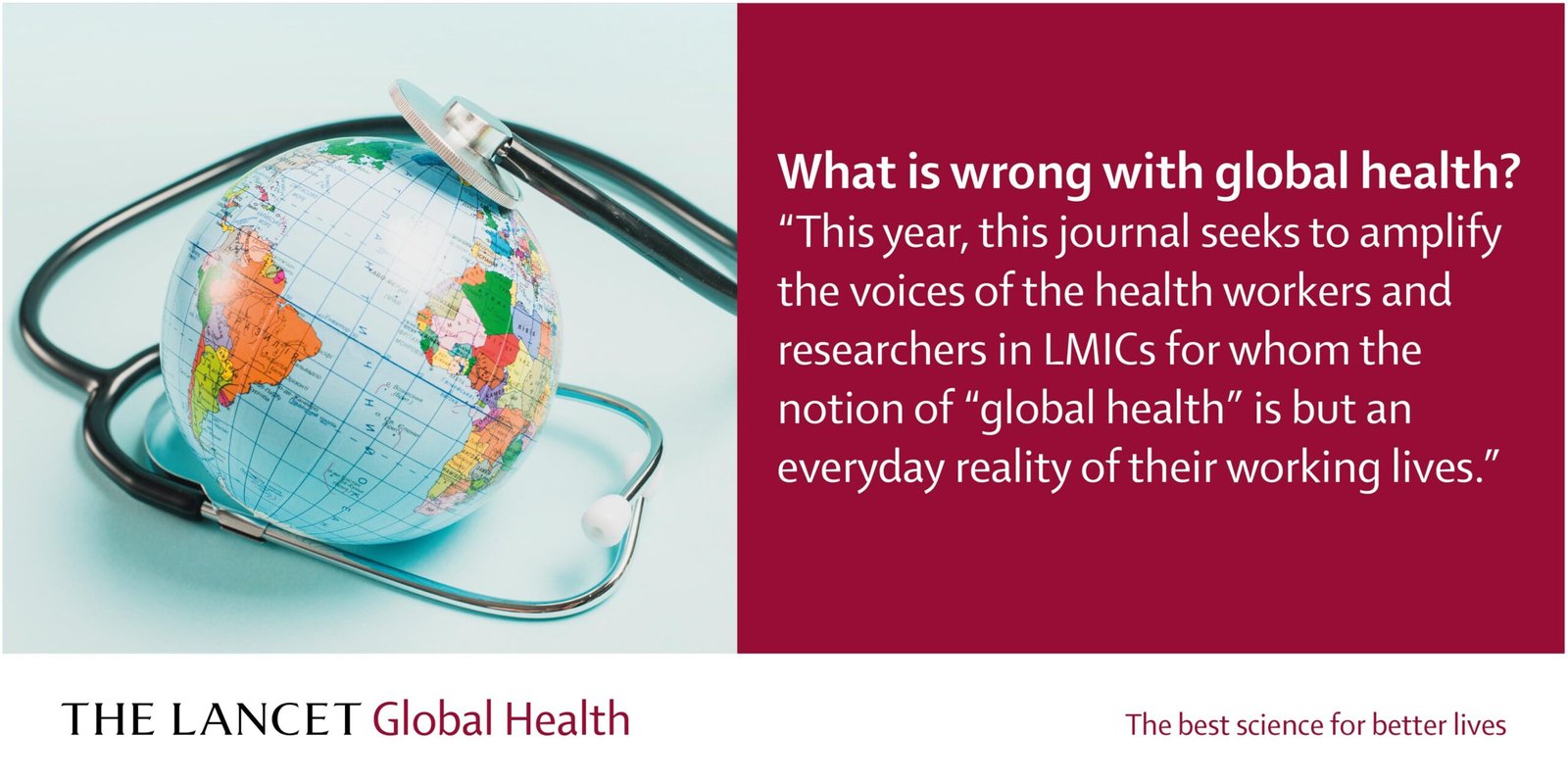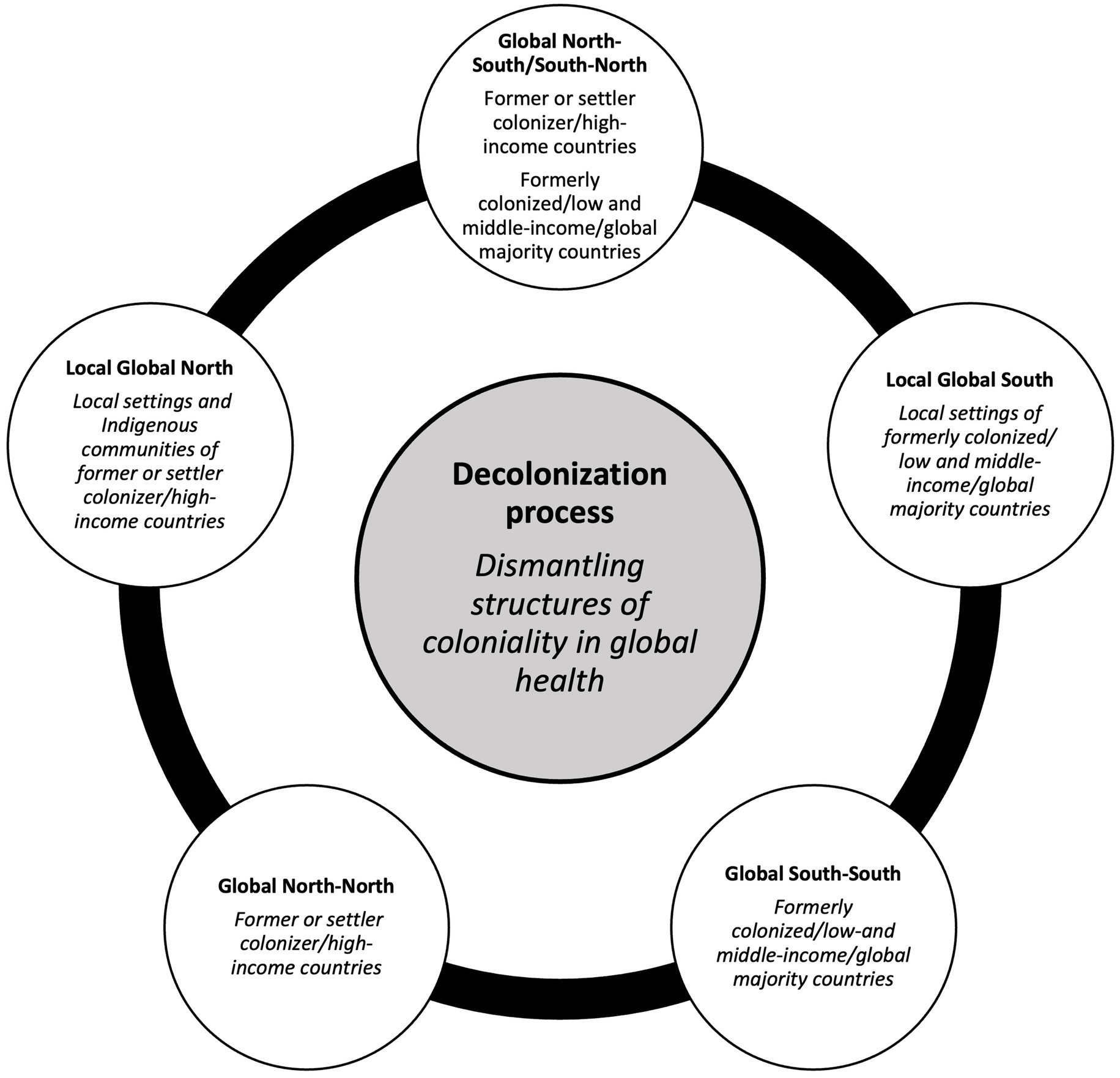
Will Global Health Survive Its Decolonization?: A Critical Analysis
Global health is undergoing significant changes. Decolonisation is at the heart of these shifts.
Global health decolonisation aims to address power imbalances. This movement seeks to empower local communities and promote equity. Traditional global health practices often overlooked local voices. Decolonisation challenges these outdated approaches. It promotes local leadership and culturally relevant solutions. But, will global health survive its decolonisation?
The answer is complex. The process involves unlearning and relearning. It requires collaboration and mutual respect. This shift is necessary for true health equity. Understanding this transition is vital. It impacts policies and practices worldwide. Join us as we explore this pressing issue in global health.
Introduction To Global Health Decolonisation
Global health decolonisation is a growing movement. It aims to address historical imbalances in global health systems. This shift seeks to empower local communities. It promotes equality and respect for all cultures. Let’s dive deeper into this topic.
Historical Context
Historically, global health initiatives often came from wealthy nations. These programs sometimes ignored local knowledge. They imposed solutions without understanding the local context. This approach led to mistrust and limited success. The decolonisation movement aims to change this.
Current Trends
Today, global health decolonisation focuses on collaboration. There is a shift towards local leadership. Communities now have a voice in decision-making. They are part of creating health solutions. This approach respects and values local expertise. It leads to more sustainable and effective outcomes.
Another trend is education. More programs train local health workers. This builds local capacity and reduces dependency on foreign aid. It also ensures that solutions are culturally appropriate.
Funding is also changing. There is more investment in local projects. Donors are recognizing the importance of supporting local initiatives. This shift ensures that resources reach those who need them most.

Credit: www.frontiersin.org
Impacts Of Colonialism On Health Systems
Colonialism has left a lasting mark on global health systems. Many countries are still grappling with its effects. The impacts range from economic dependency to healthcare inequities. These factors hinder the development of robust and fair health systems.
Economic Dependency
Many former colonies rely on foreign aid for their healthcare budgets. This dependency creates a cycle of financial instability. These countries lack the resources to build their own health systems. They often rely on imported medical supplies and expertise. This situation weakens their health infrastructure.
Foreign aid often comes with strings attached. Donor countries may impose conditions that do not align with local needs. This can lead to misallocation of resources. It can also result in ineffective health programs. Economic dependency thus stifles the growth of self-sufficient health systems.
Healthcare Inequities
Colonialism created significant disparities in healthcare access. Urban areas often have better health facilities than rural regions. This imbalance affects the overall health of the population. People in rural areas face greater health risks. They have less access to doctors and medical treatments.
Healthcare inequities also manifest in the availability of treatments. Some regions have access to advanced medical technologies. Others struggle with basic healthcare needs. This uneven distribution is a direct result of colonial policies. Such policies prioritized certain regions and neglected others.
Efforts to decolonize health systems must address these inequities. It is crucial to create a more balanced healthcare landscape. Ensuring equal access to healthcare can improve overall health outcomes. Addressing these historical injustices is a step towards a fairer health system.
Decolonization Movements
The decolonization movements in global health aim to address historical injustices. These movements seek to shift power dynamics and ensure equitable access to healthcare. Decolonization involves dismantling colonial legacies in health systems. This shift promotes local leadership and culturally relevant practices.
Grassroots Initiatives
Grassroots initiatives play a crucial role in decolonizing global health. They involve local communities taking charge of their health needs. These initiatives focus on community-driven solutions and local knowledge. This approach ensures that healthcare services align with cultural values and practices.
Examples of grassroots initiatives include:
- Community health worker programs
- Traditional medicine integration
- Local health education campaigns
By empowering local communities, these initiatives promote sustainable and culturally appropriate healthcare solutions.
Policy Reforms
Policy reforms are essential in the decolonization of global health. They aim to create systemic changes in health governance and funding. Reforms focus on equitable resource distribution and local leadership.
Key policy reform areas include:
- Inclusive decision-making processes
- Fair funding allocations
- Support for local health systems
Effective policy reforms ensure that local voices are heard and respected. They promote long-term improvements in global health equity.
Here is a comparison of traditional and decolonized policy approaches:
| Traditional Approach | Decolonised Approach |
|---|---|
| Top-down decision-making | Inclusive and participatory |
| Centralized funding | Equitable resource distribution |
| External leadership | Local leadership |
Policy reforms are vital for achieving sustainable and equitable global health systems.
32417-X/asset/b28c765e-b536-4946-8783-66aad9eb0724/main.assets/fx1.jpg)
Credit: www.thelancet.com
Challenges In Decolonising Global Health
Decolonising global health is a complex task. It involves addressing deeply rooted issues. These include power dynamics and resource allocation. Both present significant challenges. Let’s explore these challenges in detail.
Power Dynamics
Power imbalances exist in global health. Wealthier countries often control decisions. They dictate policies and funding. This can sideline the needs of poorer nations. Local voices may not be heard. This imbalance can hinder effective health solutions.
Resource Allocation
Resource distribution is another challenge. Funds and supplies often go to wealthier regions. Poorer areas might get less. This creates gaps in healthcare. These gaps can lead to worse health outcomes in underserved regions. Equitable distribution is essential.
Case Studies Of Decolonisation Efforts
Decolonisation in global health aims to shift power to local communities. It seeks to reduce dependency on foreign aid. This section explores real-life examples of such efforts. These case studies highlight both successes and lessons learned.
Success Stories
Some decolonisation efforts have shown remarkable results. For instance, Rwanda has taken control of its health system. The government invested in local healthcare workers. They built new clinics and hospitals.
Rwanda’s approach reduced infant mortality by 67% over ten years. The country now produces its own vaccines. This effort ensures that the local population has better access to healthcare.
| Country | Initiative | Outcome |
|---|---|---|
| Rwanda | Local healthcare investments | 67% reduction in infant mortality |
| Kenya | Training local midwives | Lower maternal deaths |
Kenya also shows positive results. Training programs for local midwives reduced maternal deaths. Local initiatives prove effective when the community is empowered.
Lessons Learned
Decolonisation efforts also bring challenges. One challenge is the need for sustained funding. Many projects fail when initial funding ends. It’s crucial to build a self-sustaining model.
Another lesson is the importance of local leadership. Outsiders often lack the understanding of local contexts. Local leaders can tailor solutions to fit the community’s needs.
- Need for sustained funding
- Importance of local leadership
- Community involvement
Community involvement is also key. Projects that involve local communities in decision-making tend to succeed. The active participation of the community ensures that the solutions are relevant and accepted.
Future Directions For Global Health
The landscape of global health is rapidly shifting. The process of decolonization is reshaping how health initiatives are planned and executed. To ensure a sustainable future, we must focus on several key areas. These include sustainable practices and community involvement. Both play a crucial role in shaping the future of global health.
Sustainable Practices
Sustainable practices are essential for long-term success in global health. This means using resources wisely and minimizing environmental impact. It also involves creating health programs that can continue without external aid. Effective waste management and renewable energy use are part of this approach. These practices not only protect the environment but also improve health outcomes.
Training local health workers is another sustainable practice. Skilled health workers can provide consistent care. This reduces dependence on foreign aid. It also empowers communities to take control of their health. Education and ongoing training are key to this process.
Community Involvement
Community involvement is vital for effective health initiatives. Local communities understand their own needs best. Involving them in planning and decision-making leads to more effective solutions. This also builds trust and ensures that health programs are culturally sensitive.
Community health workers play a pivotal role. They act as a bridge between health services and the community. Their local knowledge and trust within the community are invaluable. Supporting these workers can greatly enhance health outcomes.
Listening to community feedback is also crucial. Regular surveys and meetings can provide insights into what is working. This allows for adjustments to be made in real time. It ensures that health initiatives remain relevant and effective.
Role Of International Organizations
International organizations play a key role in global health. They help manage resources, share knowledge, and coordinate efforts. Can they adapt as global health moves away from old ways and becomes more equal?
International organizations play a vital role in global health decolonization. They ensure equitable access to healthcare resources. These organizations work to reduce health disparities. Their efforts focus on empowering local health systems. This helps promote self-sufficiency in healthcare.
Support Mechanisms
International organizations provide financial aid to developing countries. They fund healthcare projects and initiatives. These funds help build hospitals and clinics. They also support training programs for local health workers. Financial aid ensures that resources reach the most vulnerable populations.
Technical assistance is another key support mechanism. Organizations offer expertise and knowledge to local health systems. They help implement modern healthcare technologies. This assistance improves the quality of care provided. It also helps in managing health crises effectively.
International organizations also advocate for global health policies. They work with governments to create fair health regulations. This ensures that all countries have access to essential medicines. Advocacy helps in addressing systemic health inequities.
Collaborative Efforts
Collaboration is essential for global health decolonization. International organizations partner with local governments. They also work with non-governmental organizations (NGOs). These partnerships foster a unified approach to health challenges.
Collaborative efforts include joint research projects. These projects aim to find solutions to regional health issues. Research helps in understanding local health needs better. It also aids in developing targeted interventions.
Training and education programs are also part of collaborative efforts. International organizations support local health worker training. They provide resources and training materials. This builds local capacity and expertise.
Community engagement is crucial for successful collaboration. International organizations work with local communities. They ensure that health programs are culturally sensitive. Community involvement increases the acceptance of health initiatives.
“`

Credit: www.thelancet.com
Frequently Asked Questions
What Is Global Health Decolonisation?
Global health Decolonization the process of addressing and dismantling historical inequities in global health systems. It seeks to empower marginalized communities and ensure equitable health access.
Why Is Global Health Decolonisation Important?
Decolonisation in global health is crucial to eliminate systemic biases and inequities. It ensures fair distribution of resources and representation for all communities.
How Can Global Health Decolonization Be Achieved?
Global health decolonisation can be achieved through inclusive policies, equitable resource distribution, and active involvement of local communities. Collaboration and education are key.
What Are The Challenges In Decolonising Global Health?
Challenges in decolonising global health include resistance to change, entrenched power structures, and insufficient funding. Overcoming these requires commitment and systemic reforms.
Conclusion
Decolonising global health is vital for a fairer world. It challenges old structures, promoting equality. Success needs collaboration and respect for all voices. This journey will not be easy, but it’s necessary. Embracing diversity can strengthen health systems worldwide. Communities must unite and support each other.
Only then can we achieve lasting change. The future of global health depends on this shift. Let’s work together for a healthier, just world.







